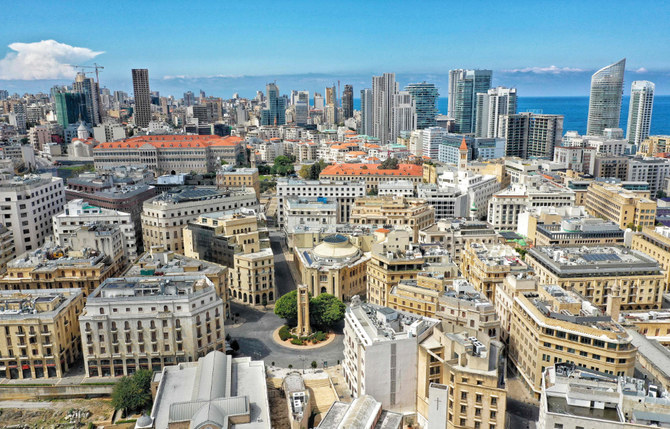BEIRUT: General Labor Union President Bechara Al-Asmar has warned against “a certain catastrophe, since hospitalization is now accessible to the wealthy only.”
At a press conference on Friday, he commented on the multitude of crises facing the Lebanese, including “the ongoing madness in the dollar exchange rate, insane increases in fuel prices, electricity bill, the removal of medicine subsidies and the loss of the depositors’ savings as a result of bank circulations — viewed as organized robbery.”
He warned that “the draft budget included a provision for raising the customs dollar, which would raise the prices of goods by 30 percent, and raise all taxes and duties.”
He added: “This is unacceptable because it entails the removal of subsidies on everything in exchange for nothing, which is surrendering to the IMF conditions without any supervision.”
The fresh warning came as the ruling elite attempted to resolve its many conflicts that are blocking political and administrative progress.
President Michel Aoun has signed a decree calling on parliament to hold an extraordinary session starting from Monday and ending on March 21.
This will restore the parliamentary immunity of the ministers charged for the crime of the Beirut port blast, including current MPs, one of whom had an arrest warrant issued for him in absentia and that has not yet been executed.
The parliamentary session sets the stage for the transfer of power from a judicial investigator to a parliamentary body for the prosecution of ministers and deputies allegedly to blame for the explosion.
Lawyer and activist Hassan Bazzi said that “the key parties to the settlements are Parliament Speaker Nabih Berri, Prime Minister Najib Mikati and President Michel Aoun.”
This follows the intense political discord between Aoun and Berri that reached its peak last week.
Bazzi said the settlement moved Aoun to sign a decree calling on parliament for a special session.
He also said that the parliamentary session’s agenda includes amending the law under review before the constitutional council — approving only six seats for expatriates’ voting instead of letting them participate in nationwide elections.
Bazzi also indicated that parliament was likely to approve the amendment to the code of criminal procedure, setting up a judicial parliamentary panel to look into appealing the decisions of Judge Tarek Bitar who has issued arrest warrants for several ministers.
While Cabinet is called to convene under this basis, Bazzi said the appointments for the panel would be made on a quota basis, where “the diaspora loses the opportunity for change and the political system regains control.”
Berri and Aoun tried to hide the parameters of this settlement by sparking a new debate concerning the special parliamentary session.
Although the main title of the urgent session is the discussion and approval of the two draft budgets, the presidential decree — bearing the signature of Prime Minister Najib Mikati — has on its agenda “the ratified laws that the president may request to be reconsidered and drafts or proposals of urgent and necessary laws related to the parliamentary elections.”
Berri indicated in a statement on Friday that “parliament is independent and is not restricted to any description of projects or proposals that the bureau of the parliament decides to put forward and the president has the right to respond after they are issued by the General Authority.”
The statement added: “This is the constitution’s provision and jurisprudence.”
The president’s team replied indirectly through unidentified sources that “they do not want to get into a debate with Berri.”
They added that article 33 of the constitution “stipulates that the parliament may be convened to extraordinary sessions by a decree setting their opening, end and agenda.”
Parliamentary sources replied to Aoun’s party that “the procedural authority may certainly set for the parliament the agenda it wants to look into in this extraordinary session, provided that parliament’s work is not limited to this agenda only.”
The settlement meant to be followed requires the re-convening of the Cabinet.
However, Hezbollah’s bloc of MPs ignored the issues of governance and only supported the opening of an extraordinary parliamentary session extending until the date of the ordinary session, in view of the urgent need to adopt laws relating to “rescue, accountability and state regularity.”
Questions remain over whether this settlement will allow the Cabinet to convene.
Political observers indicated that the settlement between Aoun and Berri — which was fostered by Hezbollah — might require the absence of Hezbollah and Amal movement’s ministers from the next Cabinet session, except for the minister of finance, because the Cabinet was expected to discuss the general budget.
They added: “This is to further tie the ongoing conflict to the resumption of the Cabinet’s work and to the withdrawal of the port’s file from Judge Bitar.”






















